
On Charles Dickens's death in 1870, an epitaph circulated around London declaring the late novelist to be "a sympathiser with the poor, the suffering and the oppressed". Such a tribute was not without reason. His works remain synonymous with the lower end of Victorian society, a landscape inhabited by orphans, factory workers, prostitutes and those fallen on hard times. Dickens gave them a voice, gave them dignity. And that legacy prevailed. Several decades later, the critic GK Chesterton labelled Dickens "the spokesman of the poor". Many believed his novels had partially reset the political and social agenda.
CLASS CRITICISM
Not everyone, though. George Orwell was among the sharpest critics when it came to Dickens's actual dedication to social reform. Orwell observed that most of the action in the novels takes place in middle-class settings that feature "the London commercial bourgeoisie and their hangers-on". The truly poor, claimed Orwell, were neglected by the novelist. "He has no portrait of an agricultural worker, and only one (Stephen Blackpool in Hard Times) of an industrial worker." Writing in the 1930s, Orwell contended that "if you ask any ordinary reader which of Dickens's proletarian characters he can remember, the three he is almost certain to mention are Bill Sikes, Sam Weller and Mrs Gamp. A burglar, a valet and a drunken midwife - not exactly a representative crosssection of the English working class."
Diese Geschichte stammt aus der Christmas 2023-Ausgabe von BBC History Revealed.
Starten Sie Ihre 7-tägige kostenlose Testversion von Magzter GOLD, um auf Tausende kuratierte Premium-Storys sowie über 8.000 Zeitschriften und Zeitungen zuzugreifen.
Bereits Abonnent ? Anmelden
Diese Geschichte stammt aus der Christmas 2023-Ausgabe von BBC History Revealed.
Starten Sie Ihre 7-tägige kostenlose Testversion von Magzter GOLD, um auf Tausende kuratierte Premium-Storys sowie über 8.000 Zeitschriften und Zeitungen zuzugreifen.
Bereits Abonnent? Anmelden
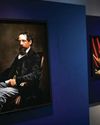
'Dickens's evocation of the fears, excitement and confusion of childhood is peerless'
DR LEE JACKSON ON WHY CHARLES DICKENS REMAINS RELEVANT TODAY
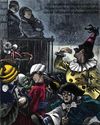
THE AUTHOR GOES ABROAD
Dickens expanded his horizons and boosted his fan-base by venturing overseas - but global fame came with a cost
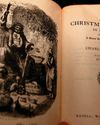
REVIVING THE FESTIVE SPIRIT
A Christmas Carol wasn't just a bestseller - it changed the way that Britons chose to mark the festive season
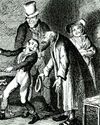
GIVING THE POOR A VOICE
From Hard Times to Oliver Twist, Charles Dickens used his pen to help illuminate the lives of the less fortunate
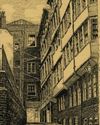
A JOURNEY THROUGH DICKENS'S LONDON
The works of Charles Dickens are synonymous with visions of Victorian London. We talk to Dr Lee Jackson about the author's love of the capital, and the locations that most inspired him
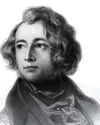
EXCEEDING EXPECTATIONS
Dr Lee Jackson chronicles Charles Dickens's journey from down-at-luck teenager to titan of Victorian literature

GIFTS, TREES & FEASTING
We take a journey through the photo archives to reveal how Christmas and its many traditions have been celebrated over the years - and around the world
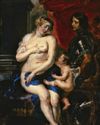
WHAT GREAT PAINTINGS SAY
We explore the story behind an allegorical painting that celebrates the triumph of love over hate, peace over war
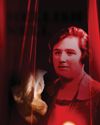
HELLISH NELL
Malcolm Gaskill delves into the life of Helen Duncan - the fraudulent Scottish medium whose ectoplasm-filled seances saw her ending up on the wrong side of the law

7 THINGS YOU (PROBABLY) DIDN'T KNOW ABOUT THE WHITE HOUSE
Presidential historian Dr Lindsay M Chervinsky reveals some of the most surprising facts about the world-famous US residence